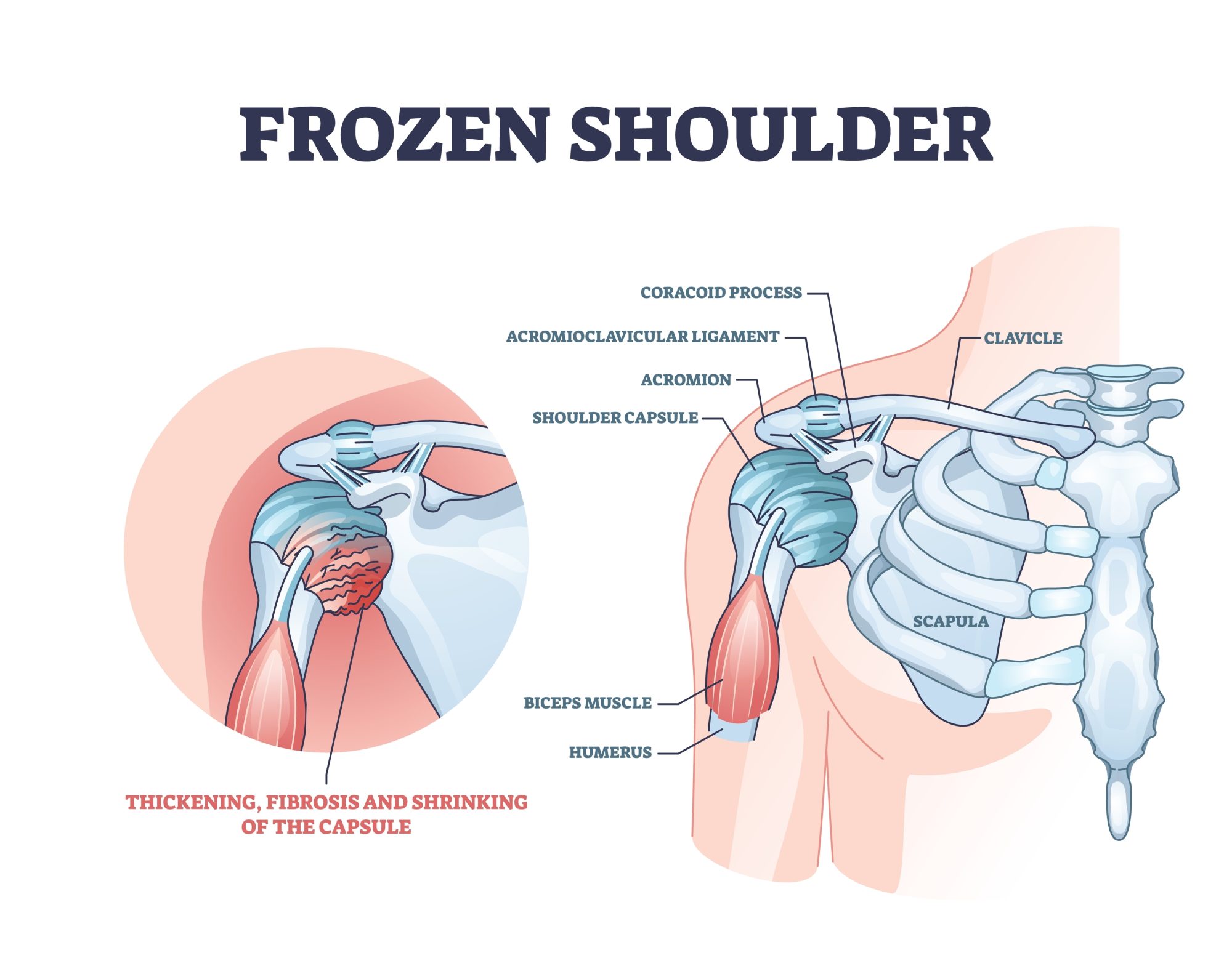
Shoulder - Arthroscopy and Sport Injury Specialist in Mumbai
Frozen Shoulder Treatment
Dr. Aditya Pawaskar is one of top notch shoulder arthroscopy Surgeon and Sports Injuries Specialist in Mumbai. With his extensive experience in orthopedics, he provides excellent care and effective treatments for patients with shoulder and knee problems.
Frozen Shoulder (Adhesive Capsulitis) Treatment:
Frozen shoulder, also known as adhesive capsulitis, is a condition characterized by pain, stiffness, and limited range of motion in the shoulder joint. It typically progresses through three phases: the freezing phase, the frozen phase, and the thawing phase. While frozen shoulder can be uncomfortable and debilitating, various treatment options are available to help alleviate symptoms and restore shoulder function.
Surgical Intervention:
Surgery is typically considered when conservative treatments fail to provide relief, and the frozen shoulder becomes extremely debilitating. Surgical options may include:
- Manipulation Under Anesthesia (MUA): The surgeon moves the shoulder joint to break up adhesions and improve range of motion while the patient is under anesthesia.
- Arthroscopic Release: In this minimally invasive procedure, the surgeon cuts through tight or thickened tissues to release adhesions and improve shoulder movement.
Sports Prone to Frozen Shoulder Treatment and Injury Risks:
Frozen shoulder, also known as adhesive capsulitis, is a condition characterized by stiffness and pain in the shoulder joint. While it can occur without a specific cause, certain activities and sports may contribute to its development. In India, the following sports may be associated with a higher risk of frozen shoulder:
- Badminton: Repetitive overhead motions, especially during serves and smashes, may contribute to shoulder strain and the development of frozen shoulder.
- Cricket: Frequent and forceful throwing actions, such as those performed by cricket bowlers, may contribute to shoulder issues, including frozen shoulder.
- Tennis: The repetitive overhead serving and strokes in tennis may contribute to shoulder strain and the risk of developing a frozen shoulder.
- Volleyball: Frequent overhead hitting and blocking actions in volleyball can strain the shoulder joint, potentially leading to frozen shoulder.
- Swimming: Competitive swimmers, especially those using strokes like freestyle and butterfly, may experience shoulder strain that can contribute to frozen shoulder.
- Gymnastics: The intense upper body movements and weight-bearing on the shoulders in gymnastics may contribute to the development of frozen shoulder.
- Weightlifting: Heavy lifting and repetitive shoulder exercises in weightlifting can strain the shoulder joint and contribute to frozen shoulder.
- Basketball: Jumping, shooting, and potential collisions in basketball may lead to shoulder strain and an increased risk of frozen shoulder.
- Wrestling: Wrestling, with its intense physical contact and potential for awkward falls, may contribute to shoulder issues, including frozen shoulder.
- Hockey: The repetitive nature of stick-handling and forceful movements in field hockey may contribute to shoulder strain and the risk of frozen shoulder.
Consult with Dr. Aditya Pawaskar, a Sports Medicine Specialist in Mumbai, to determine the most appropriate treatment for Knee & shoulder injuries based on individual cases and the latest medical advancements.
